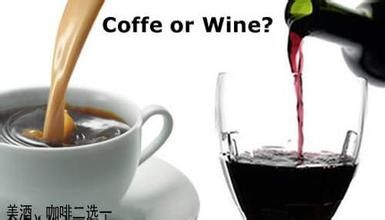Wine and coffee are more likely to get drunk.

For people born in the 1970s, Teresa Teng is probably an eternal legend. Many of her songs once pervaded the streets. Like the song "Wine and Coffee":
Neither Teresa Teng nor the author of this song would have thought that the song described a scientific fact: when drinking wine with coffee, they unwittingly drank "cup after cup", but still felt "I'm not drunk". More recently, decades later, the Centers for Disease Control and Prevention (CDC) and the Food and Drug Administration (FDA) have shown red cards for "wine and coffee" drinking.
Drinking has always been an important social problem in the United States. According to the Centers for Disease Control and Prevention, alcohol causes nearly 80,000 deaths a year. Among young people, it is fashionable to mix sports drinks with alcoholic drinks. Sports drinks contain caffeine, sugar and other ingredients. A 2009 study published by the University of Florida found that people who drank sports drinks mixed with alcoholic beverages were three times as likely to be drunk as those who drank alone, while drunken driving was four times more likely to drink alone. In 2006, an online survey conducted at 10 universities in North Carolina randomly selected more than 4,000 samples. Statistics show that people who drink sports drinks mixed with alcoholic beverages spend almost twice as much time being drunk each week as those who drink alone. The adverse consequences of other alcohol have also greatly increased, such as sexual harassment and sexual harassment, riding in cars driven by people who have been drinking, alcoholism, and injuries.
Why does caffeine make people more likely to get drunk? the explanation provided by FDA and CDC is that when people drink, they judge the amount of alcohol they have drunk according to some subjective feelings. But caffeine blocks this perception, so drinkers unwittingly drink more, "cup after cup". However, caffeine does not help the metabolism of alcohol in the body, so it just tricks you into drinking more and does not help solve the problems that arise after drinking it. A study published in 2006 in Alcoholism: clinical and Experimental Research supports the theory that after drinking the same alcohol, people who drank sports drinks at the same time had significantly lower levels of "drunken symptoms" such as headache, weakness, dry mouth and dyskinesia than those who drank alone. However, drinking sports drinks at the same time did not increase the body's sensitivity.
In addition to this fashionable "mixed drink", there are many manufacturers that produce alcoholic beverages with caffeine. The drink, called CAB for short, usually contains 512% alcohol, as well as a considerable amount of caffeine. Generally speaking, manufacturers do not mark the amount of caffeine. This drink has been a great success on the market, especially among young people. From 2002 to 2008, the sales of the top two brands with market share increased 67 times to more than 80 million liters. At present, there are about 30 manufacturers producing such products on the market.
For the reasons mentioned in CDC's announcement, FDA believes it is necessary to conduct a serious review of the safety of CAB beverages based on scientific evidence. On November 13, 2010, FDA sent an open letter to companies that produce such drinks, saying that they would review the safety and legality of such products.
In terms of our habitual thinking, alcohol is a "traditional" food, while caffeine is a "plant essence", and coupled with the popularity of the public (FDA says as many as 26% of college students drink refined caffeinated drinks), CDC's report is likely to be questioned by the public. However, according to the basic laws on food and drugs in the United States, a substance that is deliberately added to food without special permission from FDA, or is not considered to be GRAS, will be regarded as an "illegal additive." "GRAS" is an acronym for "generally recognized safety". Now FDA adopts a "filing system" for the identification of the "GRAS" of a substance. That is to say, the manufacturer needs to organize its own experts to provide sufficient evidence to prove that it is safe under the conditions used. After the FDA review, there is no objection to the evidence before the manufacturer's conclusion will be recognized. However, caffeine was deliberately added to drinks as an ingredient, and FDA only approved no more than 2/10000 of non-alcoholic beverages, not alcoholic beverages. In addition, no CAB manufacturer has applied for GRAS, so CAB beverages are in an "illegal" and "unsafe" situation.
Four days later, the four companies that make CAB became "starters". FDA sent a warning letter to them, formally pointing out that the caffeine they added to alcoholic beverages was an "unsafe food additive" and asking them to report handling measures within 15 days, otherwise they would be ordered to stop selling through the court.
Important Notice :
前街咖啡 FrontStreet Coffee has moved to new addredd:
FrontStreet Coffee Address: 315,Donghua East Road,GuangZhou
Tel:020 38364473
- Prev

How many cups of coffee do you drink every day to prevent serious illness? Reduce the risk of death from a variety of serious diseases
A 19-year follow-up study by the research team of the National Cancer Research Center of Japan found that drinking more coffee and green tea can help reduce the risk of death from a variety of serious diseases. According to the number of times the subjects drank coffee, the research team divided them into five groups that drank almost no coffee to more than five cups of coffee a day. The results showed that they were based on a group of people who drank almost no coffee.
- Next

Peruvian raccoon shit coffee the most expensive cup in the world can be sold for $60.
Peruvian coffee is very popular in the international market in recent years, frequently won the international coffee gold awards, Peruvian coffee mellow taste and soft sour taste is very popular. Now Peru has become the world's third largest exporter of coffee, especially a kind of coffee derived from raccoon droppings, tens of dollars a small cup, one of the most expensive coffee in the world. Raccoon poop coffee is expensive.
Related
- Beginners will see the "Coffee pull flower" guide!
- What is the difference between ice blog purified milk and ordinary milk coffee?
- Why is the Philippines the largest producer of crops in Liberia?
- For coffee extraction, should the fine powder be retained?
- How does extracted espresso fill pressed powder? How much strength does it take to press the powder?
- How to make jasmine cold extract coffee? Is the jasmine + latte good?
- Will this little toy really make the coffee taste better? How does Lily Drip affect coffee extraction?
- Will the action of slapping the filter cup also affect coffee extraction?
- What's the difference between powder-to-water ratio and powder-to-liquid ratio?
- What is the Ethiopian local species? What does it have to do with Heirloom native species?

